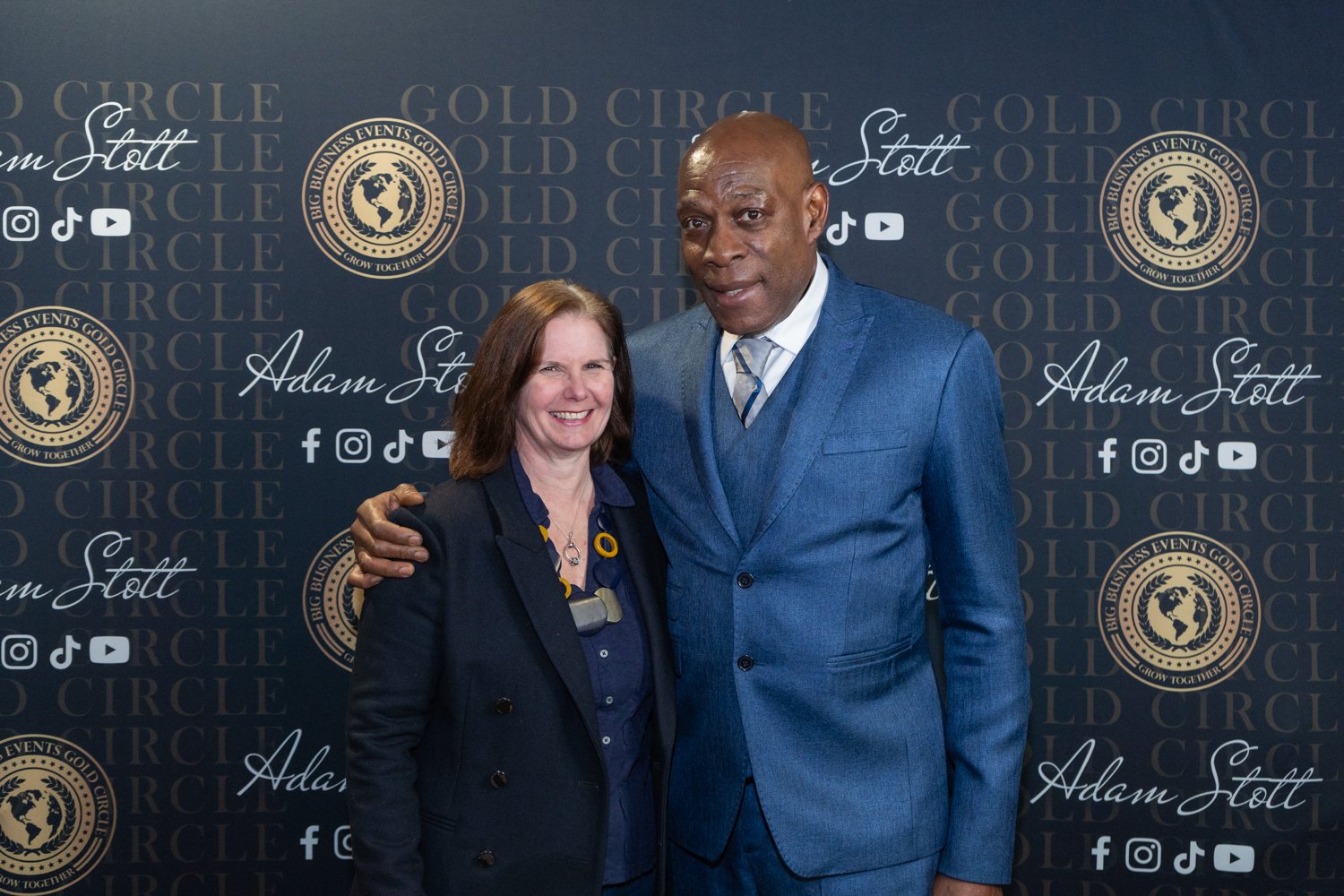On this week’s episode of Impactful Teamwork, I had the privilege of meeting the legendary boxing champion Frank Bruno. As I listened to his powerful journey, I realised that the same qualities that made him a world champion—resilience, discipline, and mental toughness—are also essential in business and leadership.
In this podcast episode I broke down the three key lessons I learned from Frank Bruno and explore how they apply not only to business but also to nature and leadership models backed by research.
1. Resilience: Bouncing Forward from Setbacks
Resilience is a vital trait for any leader or business professional. While most people talk about “bouncing back” from challenges, Russell Harvey, whom I interviewed in a past episode, describes resilience as “bouncing forward.” This means that rather than just recovering from setbacks, you emerge stronger and better prepared for the future.
Frank Bruno’s Lesson in Resilience
Frank’s boxing career was filled with triumphs and setbacks. He fought some of the greatest heavyweights, including Mike Tyson and Lennox Lewis, and suffered devastating defeats. However, he never abandoned his dream of becoming a world champion. After multiple attempts, he finally won the WBC heavyweight title in 1995, proving that persistence pays off.
A Business Example of Resilience
At Deloitte, my team and I worked on a cutting-edge project aimed at revolutionising shared financial services in the hospitality industry. We had strong client interest, but when it came to decision-making, no one was brave enough to take the leap. This could have been disheartening, but we took the lessons learned and pivoted our approach. Resilience is not just about recovering; it’s about adapting.
A Lesson from Nature: The Phoenix Palm
The Phoenix Palm is one of nature’s most resilient species. It survives extreme drought, wildfires, and even being cut down to its core. Yet, it regenerates and thrives once again. Just as Frank Bruno kept returning to the ring after setbacks, this tree teaches us that challenges are temporary and persistence leads to growth.
Scientific Model: The Resilience Framework
Developed by Dr. Ann Masten, the Resilience Framework suggests that resilience is not an innate trait but a set of adaptive behaviours that can be nurtured. It highlights:
- Protective Factors: Supportive relationships and problem-solving skills.
- Adaptation Systems: Learning from stress to improve future responses.
📊 Research Insight: The American Psychological Association found that 75% of highly resilient individuals attribute their ability to recover from adversity to strong social support networks. (Source)
Key takeaway: Setbacks should not define you—they should refine you. Leaders must embrace challenges, pivot when necessary, and keep pushing forward.
2. Discipline and Hard Work: The Foundation of Success
Success is not accidental; it is built through consistent effort, strategic planning, and disciplined execution.
Frank Bruno’s Discipline in the Ring
Boxing is not just about physical strength—it requires immense discipline. Frank Bruno was known for his rigorous training and unwavering commitment to his craft. His success came from years of sacrifice, strict routines, and relentless effort.
A Business Perspective on Discipline
When I started my own business, I assumed that intelligence and effort alone would ensure success. However, I quickly realised that daily discipline, including consistent outreach, follow-ups, and strategic planning, is what truly makes the difference.
A Lesson from Nature: The Honeybee
Honeybees epitomises discipline and hard work. Each member of the hive has a role, and their tireless efforts ensure survival. A worker bee can visit thousands of flowers per day, all in service of the collective success of the hive. Just like bees, leaders must implement daily, disciplined actions to see long-term results.
Scientific Model: The 10,000-Hour Rule
Popularised by Malcolm Gladwell in Outliers and based on research by Anders Ericsson, the 10,000-Hour Rule suggests that mastery in any field requires at least 10,000 hours of deliberate practice.
📊 Research Insight: A Journal of Applied Psychology study found that individuals who engage in deliberate practice for extended periods improve their performance by 26%. (Source)
Key takeaway: Success is not about luck; it’s about consistent, focused effort. Leaders must instill discipline in themselves and their teams to achieve sustainable growth.
3. Mental Toughness: Strength in Adversity
Mental toughness is the ability to stay strong, focused, and adaptable under pressure.
Frank Bruno’s Struggles and Strength
Frank’s toughest battles were not just in the ring. He has been open about his mental health struggles, showing immense courage in discussing a topic often stigmatised in sports. His journey is a reminder that mental resilience is just as crucial as physical strength.
The Business Connection: Mindset Over Matter
When I transitioned from corporate to entrepreneurship, I was confident in my abilities—but I underestimated the mental strength required to push through uncertainty, rejection, and setbacks. Business success is 80% mindset and 20% action.
A Lesson from Nature: The Arctic Fox
The Arctic Fox survives some of the harshest conditions on Earth. During winter, temperatures drop to -50°C, and food becomes scarce. However, instead of giving up, it adapts its hunting strategy, conserves energy, and evolves to endure the cold. Similarly, leaders must adapt, persevere, and reinvent in times of uncertainty.
Scientific Model: The 4C Model of Mental Toughness
Developed by Dr. Peter Clough, this model identifies four core attributes of mental toughness:
- Control – Managing emotions and the situation.
- Commitment – Staying dedicated even under pressure.
- Challenge – Viewing obstacles as growth opportunities.
- Confidence – Believing in your abilities despite setbacks.
📊 Research Insight: The Journal of Sports Sciences found that mentally tough athletes outperform their peers by 15% in high-pressure scenarios. (Source)
Key takeaway: Challenges are inevitable, but mental strength determines how you respond. Prioritizing self-care, support networks, and a resilient mindset will help leaders navigate adversity.
Final Thoughts
Meeting Frank Bruno was an unforgettable experience that reinforced the importance of resilience, discipline, and mental toughness. These qualities are essential in sports, business, and life.
Nature, research, and leadership insights all point to the same truth—those who persist, work hard, and develop mental strength rise above challenges and achieve extraordinary success.
👉 What’s your next challenge? Will you step forward with the mindset of a champion?
Let’s continue the conversation—connect with me on LinkedIn or drop a comment on our social media pages!
Show Notes:
Here are the highlights from this episode:





